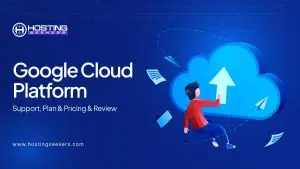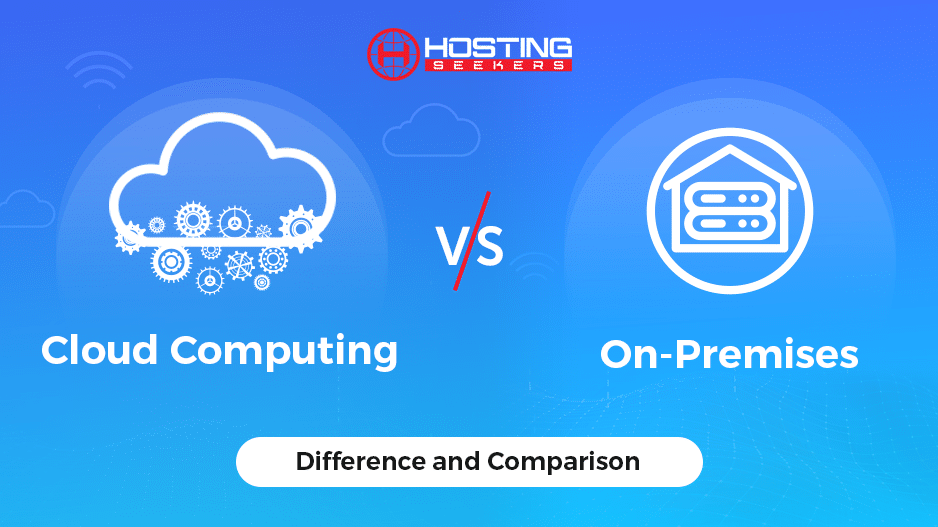
Cloud Computing vs. On-Premises – What’s Best To Store Your Sensitive Information?
Cloud Industry IT Published on Date: August 22nd 2021Cloud Computing vs. On-Premises: Cloud computing has been and still is a modern change in computing as it has fundamentally changed the concept of using data and devices like computers, tablets, and mobile phones. The idea behind developing the cloud is to move applications and data to clusters of machines accessible from all around the world using the Internet.
Therefore, a third–party physical server locates the data so that any device and location can access it.
“Large enterprises claim that you do not need a supercomputer or a large amount of storage to access the data or to communicate in high definition, a good Internet connection is enough.”
The traditional archiving methods like physical memories and local drives are no longer able to meet the requirements of this modern world and it’s the only reason that large hi-tech companies have built their infrastructure with the magical world of the cloud.
Moreover, Cloud Computing has prevented purchasing several hardware/software components, and one does not need to monitor, maintain, or update data manually with the cloud.
Understanding On-Premises And Cloud Computing
Whenever it comes to Cloud computing vs On-Premises, the right solution for a company always depends upon the type and requirements of that company. A decade back, on-premises data management solutions were common and were high in demand. And now, cloud-based solutions feel like the most convenient way to do business over the Internet.
In the subsequent section, we will explain the difference between cloud and on-premise solutions along with their pros and cons.
What is On-Premises?
On-premises means storing your data on local devices and it can be accessed only if you have permission to access the storage devices. On-premise solutions are the best for those who have complete control over their infrastructure.
Earlier with an on-premise solution, you have direct and unrestricted access to all the resources and options as well for individual personalization. With this computing, you will have complete control over the security, service quality, and you can make sure that data don’t get outside of your network.
However, it’s a bit complex and expensive data management solution. In addition, companies with a large amount of data need to purchase their own servers and hardware along with a dedicated team of IT specialists to maintain uptime.
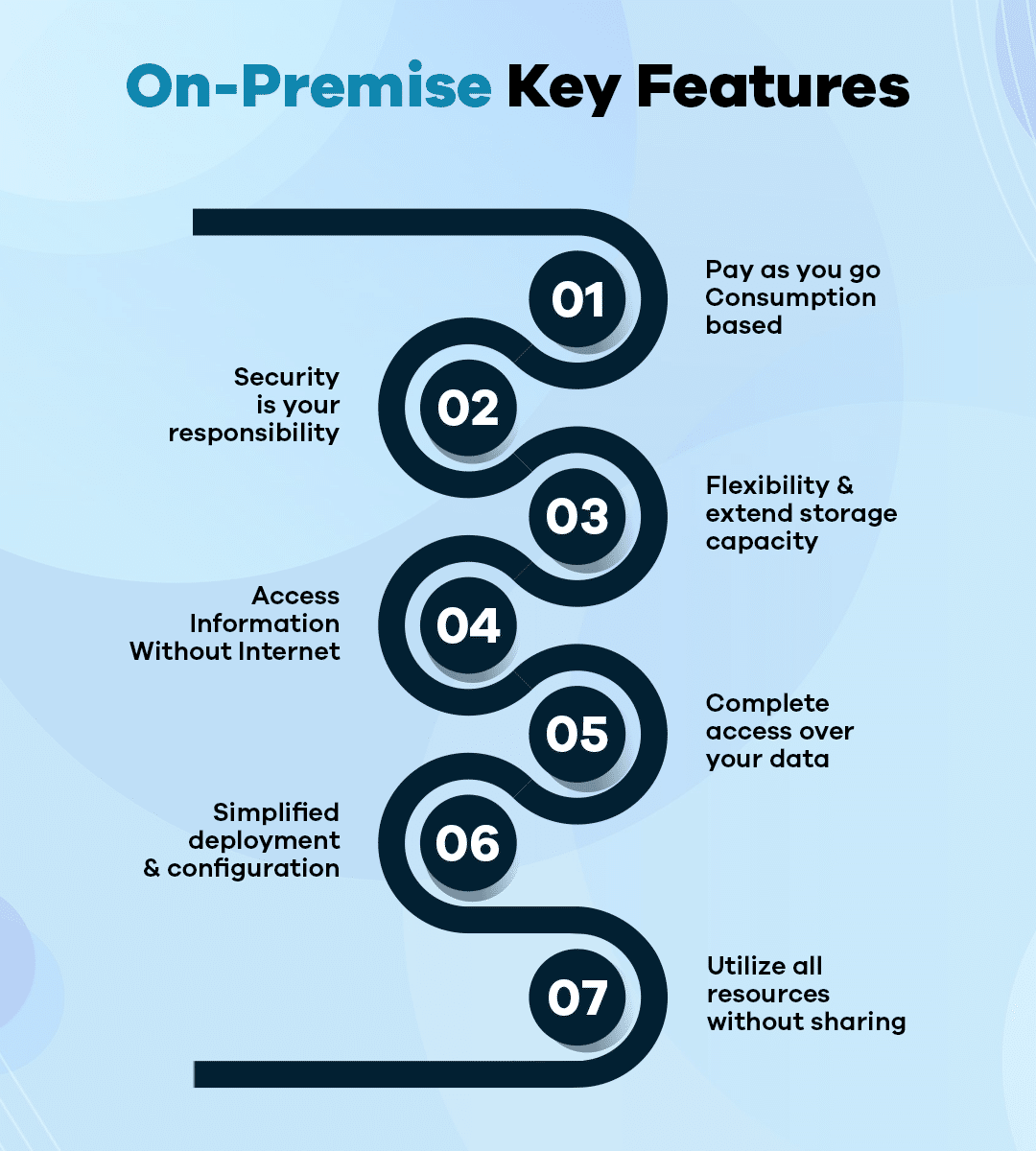
What is Cloud Computing?
Cloud refers to a virtual storage space used to store all sorts of data items. Software as a Service (SaaS) is the common principle of cloud computing. However, there is Infrastructure as a Service (IaaS) and Platform as a Service (PaaS) platforms as well.
Consequently, Cloud computing giants AWS vs Azure vs Google Cloud has made everything super easy as the data and applications can be accessed from anywhere using any device, just with a stable Internet connection. If using cloud service, no need for your own server/IT specialists to secure/maintain data/infrastructure.
In addition, Storage space is almost unlimited and can be expanded with a stable Internet connection.
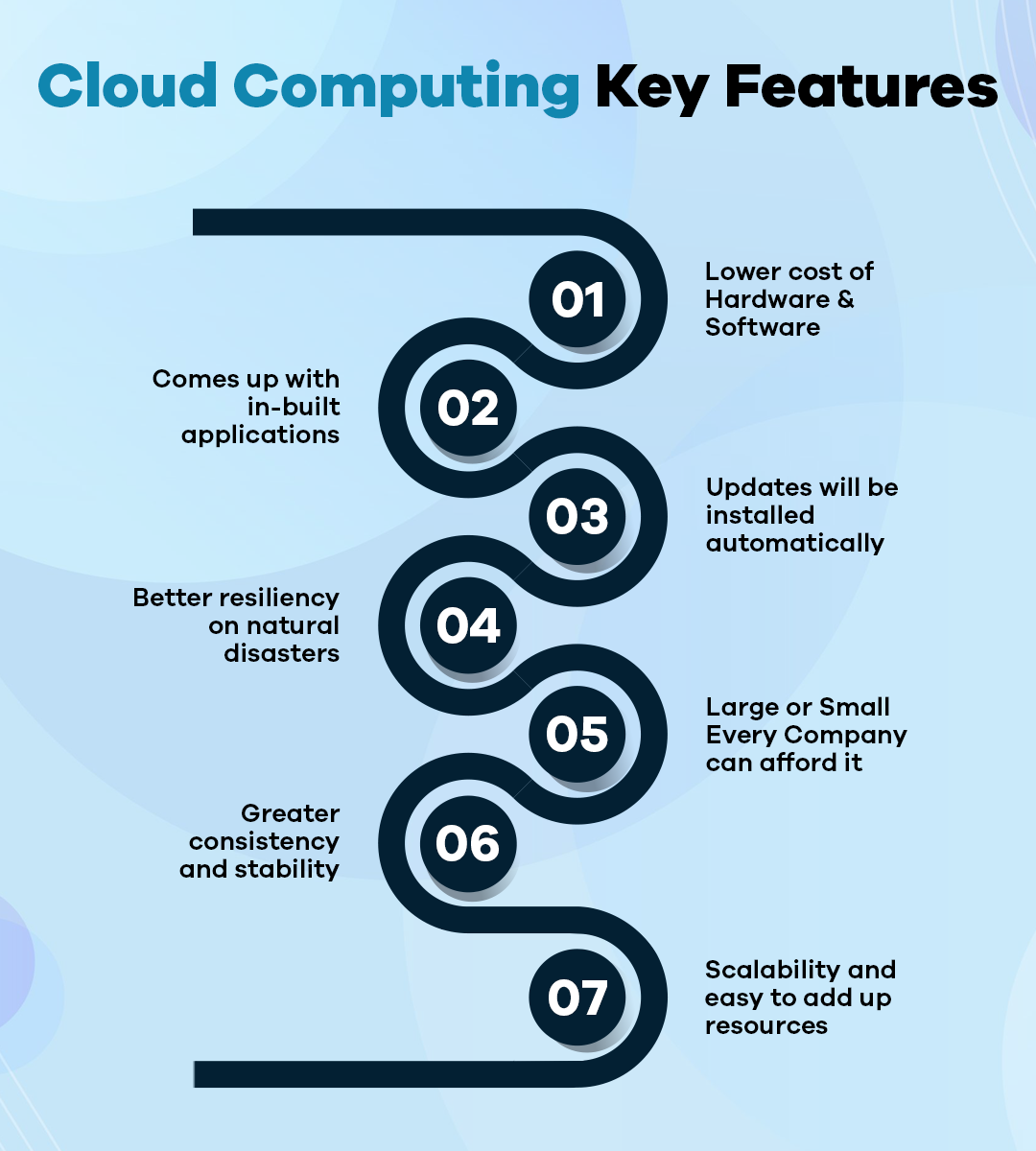
Cloud Computing vs On-Premises – Major Key Differences
Users differentiate between the two data management platforms based on how they use them:
1. Usage
- Cloud Computing: The cloud data is hosted on an external server and can be accessed from anywhere using the Internet.
- On-Premises: The On-Premise database/applications are installed and maintained locally. The same devices or applications can only access their database.
2. Control
- Cloud Computing: The security of data has always been a major concern of users and it is also a primary barrier to cloud computing deployment. Recent cloud disasters have affected several businesses and exposed vulnerabilities and security gaps. Therefore, both users and service provider must collaborate to ensure the safety of data stored on the cloud. Additionally, proper protocols must be followed to guarantee the security of the cloud.
- On-Premises: All the companies having sensitive information like bank details, and health reports, require a certain level of security and data protection. In such cases, On-Premise data storage is the best solution and the local environment makes more sense here.
3. Compliance
- Cloud Computing: The companies opting for the cloud computing model, need to thoroughly review their due diligence and make sure that the third-party cloud provider complies with all the legal business requirements of the industry. In addition, we must protect the sensitive database and maintain customers‘ information as confidential at any cost.
- On-Premises: According to the compliance Not regulating through laws does not make any sense today. Every industry must pay attention to some particular points related to compliance. All the companies subject to regulations remain compliant and must know the location of their all the time.
4. Pricing
- Cloud Computing: All the companies opting for the cloud computing model must have to pay for the resources they are using except the maintenance cost. The consumption of power consumption, resources and services, and storage space always adjusts the pricing up or down.
- On-Premises: All the companies using On-Premises are responsible for the running cost of their server hardware, Companies that use on-premises software are responsible for the running costs of the server hardware, power consumption, and storage space.
5. IT Management
- Cloud Computing: Before choosing a cloud service provider, one must check the structure, location, and origin of the cloud service provider. Moreover, one must check the service provider‘s support and help history.
- On-Premises: In the case of On-Premise, all the business data is stored in the local IT environment and the user is having full control over what happens to the database. In Addition, We also guarantee independence from external cyber threats.
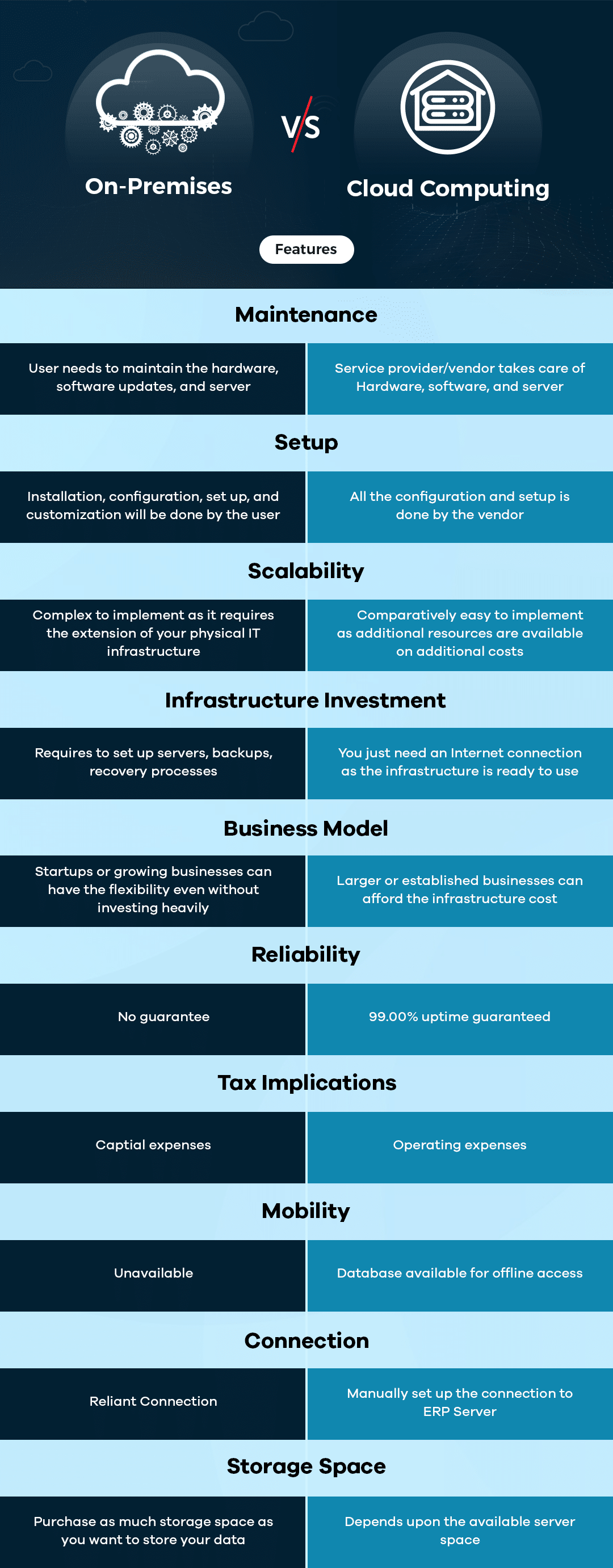
Cloud Computing vs On-Premises: Which One You Should Go With?
The best choice for managing your IT infrastructure majorly depends on the characteristics of the company and business requirements. Public cloud quickly & effectively manages data w/ ready–to–use VMs, security & speed. On the other hand, On-premise solutions require investing in hardware and software. You will also have complete access to your data secured from external security threads migrated from the cloud to on-premise or vice-versa with migration tools.

